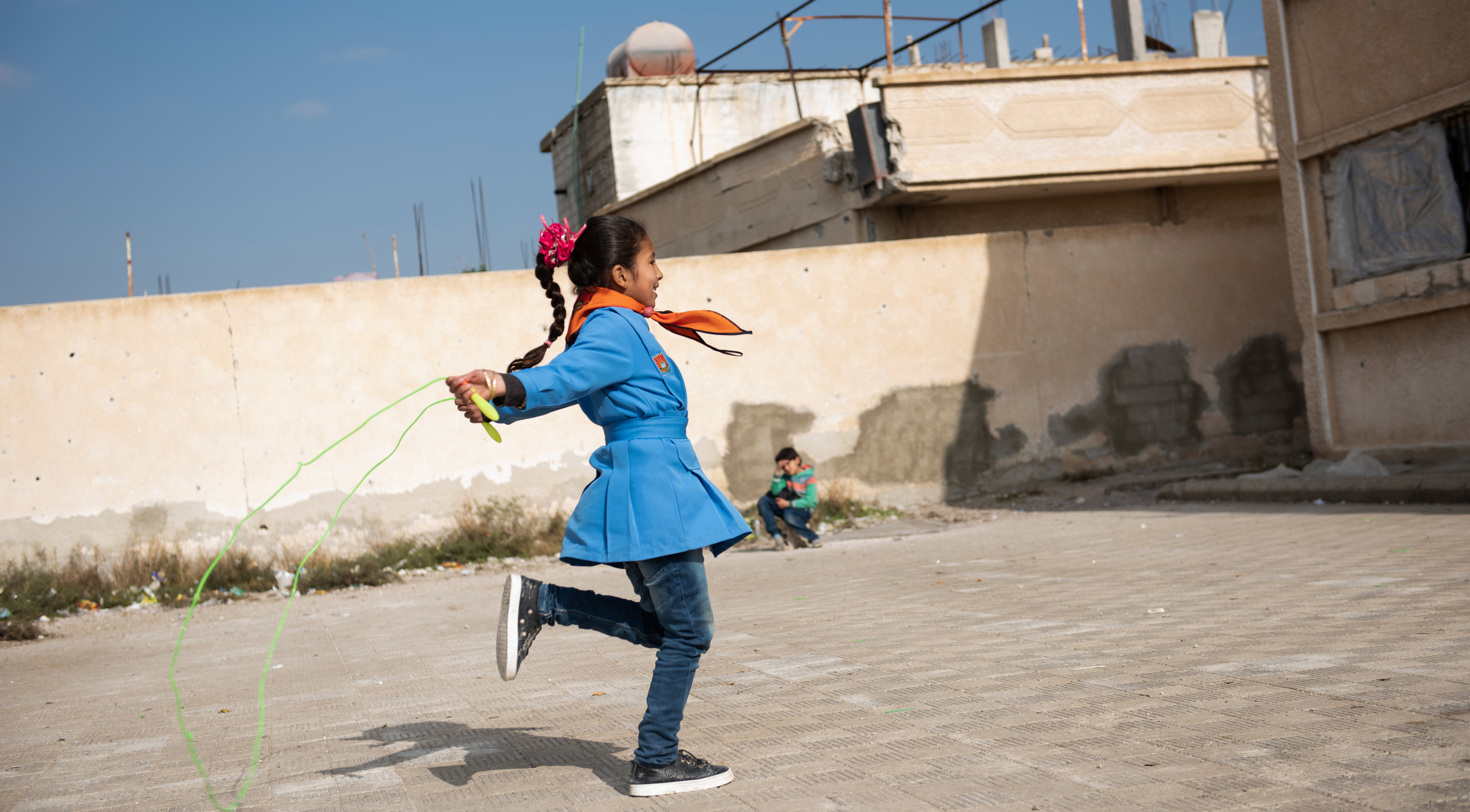After over 11 years of war, humanitarian aid is still crucial for the survival of people in Syria. Demand has once again risen sharply due to the increased price of food resulting from the war in Ukraine. The task of aid organizations, however, is to look ahead to the social and economic reconstruction that will await the country after peace has been achieved, including creating long-term prospects.
The war in Syria is one of the greatest humanitarian catastrophes in recent history. The number of deaths has been steadily declining since 2015 and amounted to approximately 4,000 in 2021. While this does indeed indicate a decrease in the conflict’s intensity, a normalization of the situation is not yet in sight. On the contrary, whilst the focus of global attention has shifted to other conflict zones and catastrophes (such as those in Ukraine), the economic situation of people in Syria is worsening to a concerning extent.
Enormous food insecurity
Of the approximately 21 million Syrians, over 6.5 million have fled across the border, especially to the neighboring countries of Lebanon, Turkey and Jordan. In Syria, over half of the working-age population is unemployed and around 80 per cent of the country’s residents live in poverty. For 12 million people—in other words, the majority of the population—food security is not guaranteed. For these people, daily life is a question of survival. They have been hit with a five-fold increase in food prices within the space of two years and inflation is still rising. The economic situation has never been so precarious. In addition to the war in Ukraine, massive crop failures as a result of drought in the country and the coronavirus pandemic have also been a cause. Like many poorer countries around the world, in particular the neighboring country of Lebanon, Syria is suffering from a convergence of multiple crises.
Emergency aid remains indispensable
International cooperation of the sort engaged in by Caritas Switzerland in Syria also constitutes a contribution to peacebuilding. However, the road to peace in Syria appears to be long and difficult. In this situation, intensifying social upheavals must be counteracted wherever possible. Without lasting peace in Syria and an improvement of the economic situation in the region, emergency aid projects remain indispensable.
Vulnerable families are being forced to adopt negative coping strategies to meet their basic needs, such as food and accommodation. They are reducing the number of meals they eat daily, cutting back on healthcare and education, and selling possessions that they still require. Child labor, early school leaving, and child marriage are on the rise, as are domestic tensions and violence. Family relationships are being put under significant strain in the daily struggle to make ends meet. Caritas Switzerland is currently supporting families in cities including Aleppo and Homs by providing cash assistance: For half a year, the families receive monthly cash payments and are provided with guidance by social workers. This cash-based approach means the families who receive it can spend the money on what they need the most, which could be as varied as medication or better insulation for their living spaces to protect against the cold in winter. At the same time, it bolsters local partner organizations that have direct access to those in the most urgent need and ensure the aid is implemented. As pillars of civil society, they are important actors in overcoming the crisis and developing a peaceful future for the country.
Preventing a lost generation
Crucial though emergency aid may be, it is also important to plan for the challenges ahead once peace has been established, whatever form it may take. With respect to education, for example, the state school system is barely functioning and is leaving generations of children and young people without educational prospects. The work of NGOs and international organizations is geared towards preventing the burden of reconstruction from falling onto the shoulders of a lost generation with little or no education. Caritas Switzerland is supporting projects by its local partner organizations that enable children to access education. Teacher training is one central component of this.
After eleven years of war, financing projects that benefit the people of Syria is difficult. Not even half of the financial needs of large international agencies are being met. The war in Ukraine is absorbing financial resources and intensifying this situation. But rising prices are also having a negative effect on aid. The World Food Programme, for example, has had to reduce its food aid rations for cost reasons.
Political peace is needed in Syria to stop the spiral of poverty. War costs too much. Unfortunately, the prospects of political peace have significantly worsened since the outbreak of the war in Ukraine.
For this reason, NGO engagement is not only required on the ground: The international community must be reminded again and again that it must intensify its efforts for lasting peace and reconstruction. Switzerland is also being urged to continue and intensify its contributions. As a host country, Switzerland plays a marginal role for displaced people from Syria. But our country is doing a poor job of this: Almost half of the 20,000 Syrians living in Switzerland do not have refugee status and instead have only been “temporarily admitted”. As part of a comprehensive approach, Caritas is pushing to have these people recognized as refugees.


